Photos: This Python Chowed Down on 3 Deer
Hungry predator
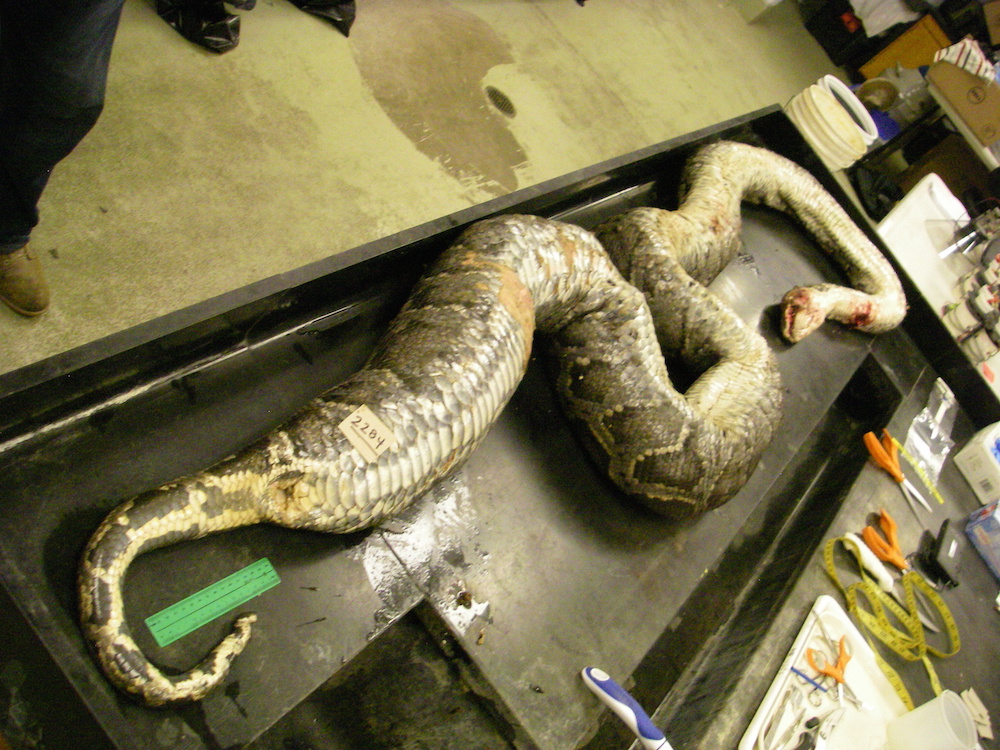
A Burmese python treated the Florida Everglades like an all-you-can-eat buffet after it ate three deer in a mere three months, a new study finds. After authorities caught and euthanized the snake — whose species is invasive — they did a necropsy, or an animal autopsy. They found the remains of three deer — a doe and two fawns — that the python likely killed by wrapping itself around the animal's body and restricting its blood flow. [Read the Full Story on the Ravenous Python]
Long snake
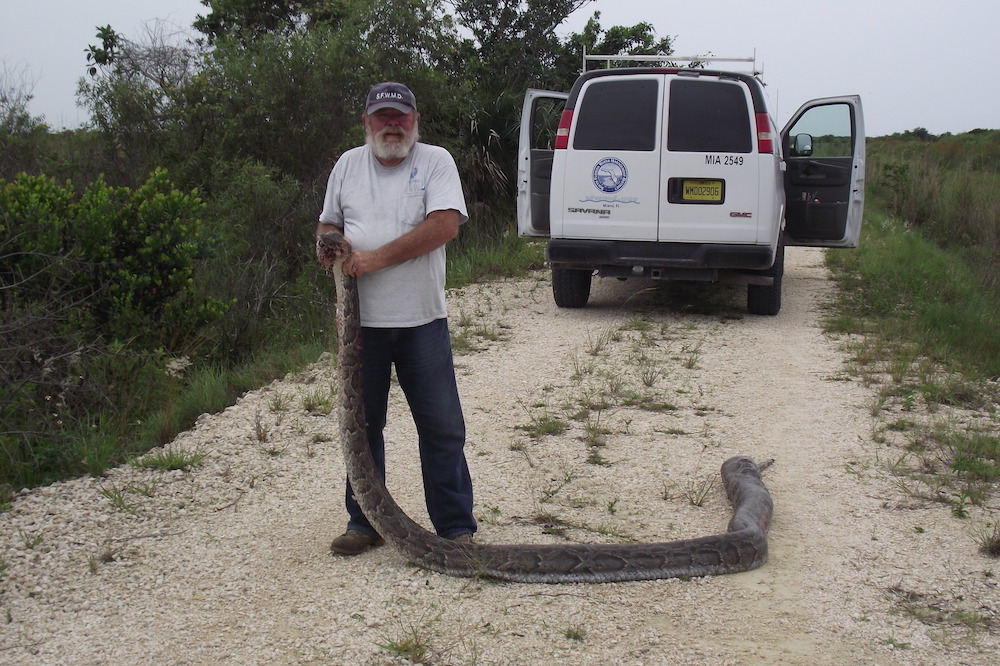
Officials caught and euthanized the 15.6-foot-long (4.78 meters) female snake in the Everglades on June 3, 2013.
Snake necropsy

The python carcass just before the necropsy.
Close up
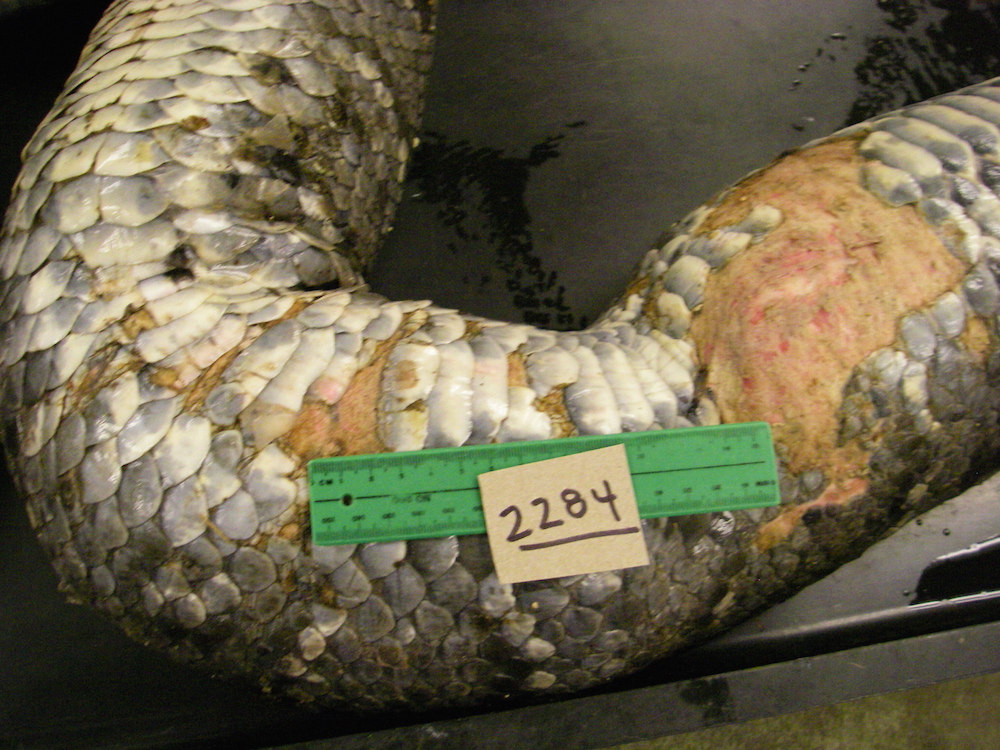
This close-up of the snake shows that it had lesions on the top of its body before the necropsy began.
Large intestine
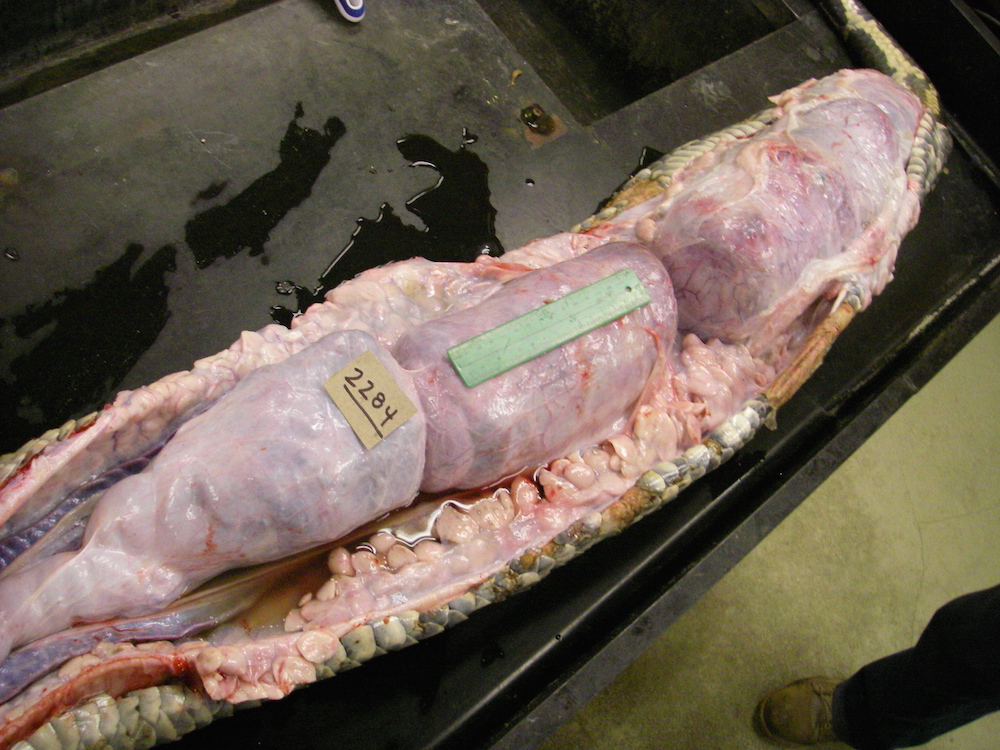
The python's large intestine, which holds the fecal matter within. The excrement weighed more than 14 lbs. (6.5 kilograms), or 13 percent of the snake's body mass, the researchers said.
Snake poop
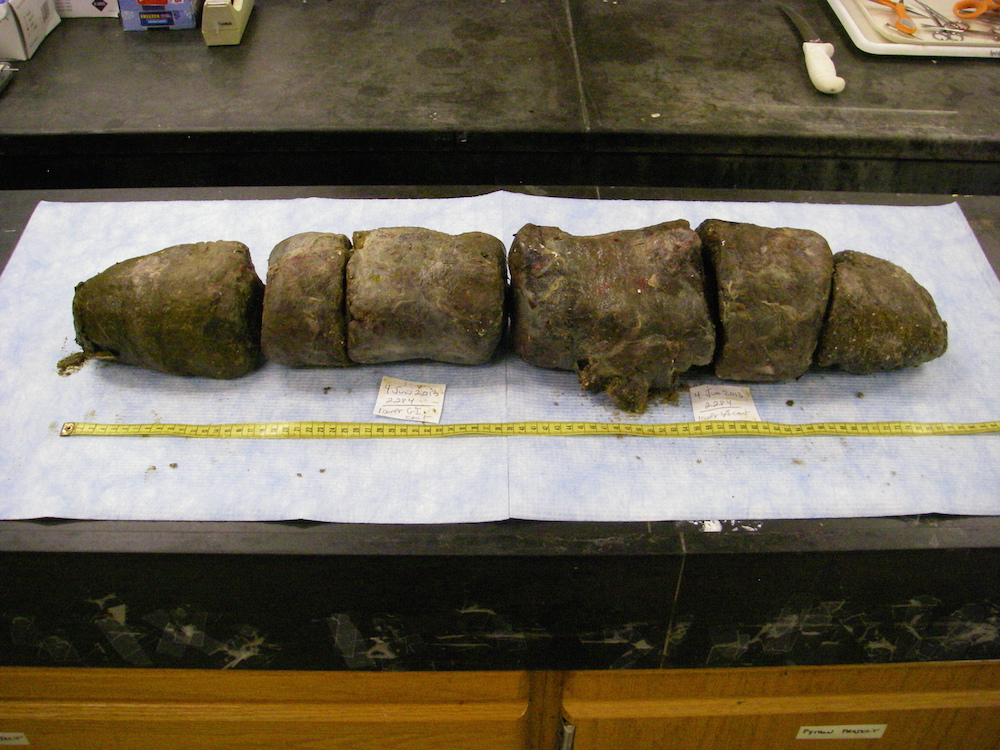
The exposed snake poop was 31 inches (79 centimeters) long.
Hoof sheaths
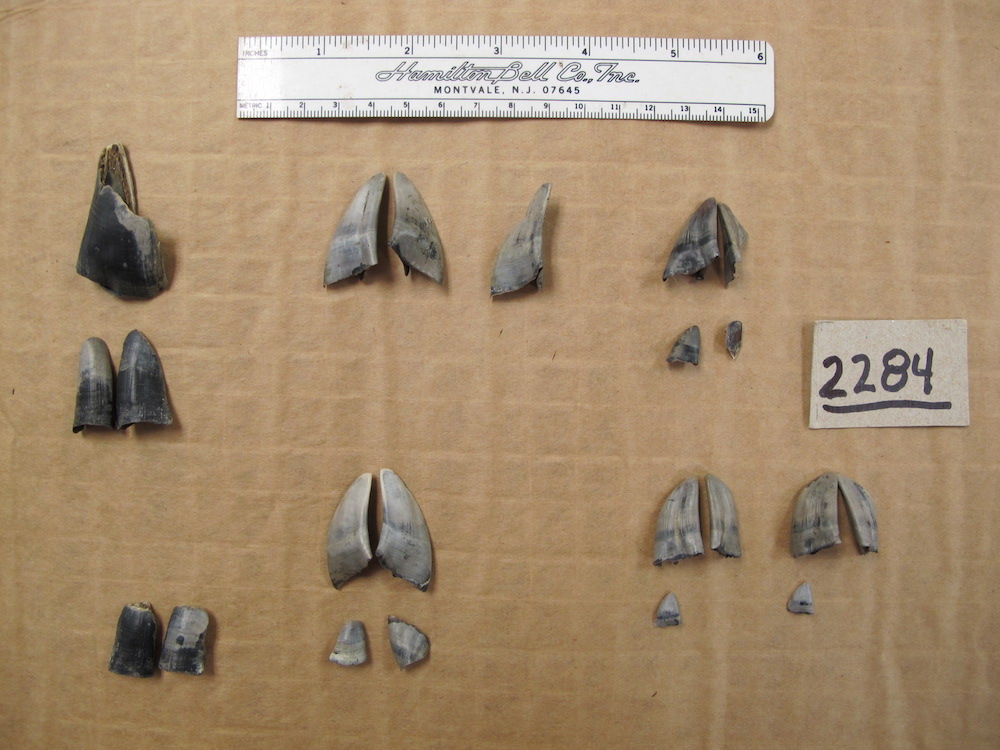
After sifting through the snake poop, the researchers found 12 white-tailed deer hooves and 10 dewclaws — the upper part of the deer's toes. The hooves are organized by individual, with the adult on the left side, the large fawn in the middle and the small fawn on the right.
Sign up for the Live Science daily newsletter now
Get the world’s most fascinating discoveries delivered straight to your inbox.
Fawn hoof
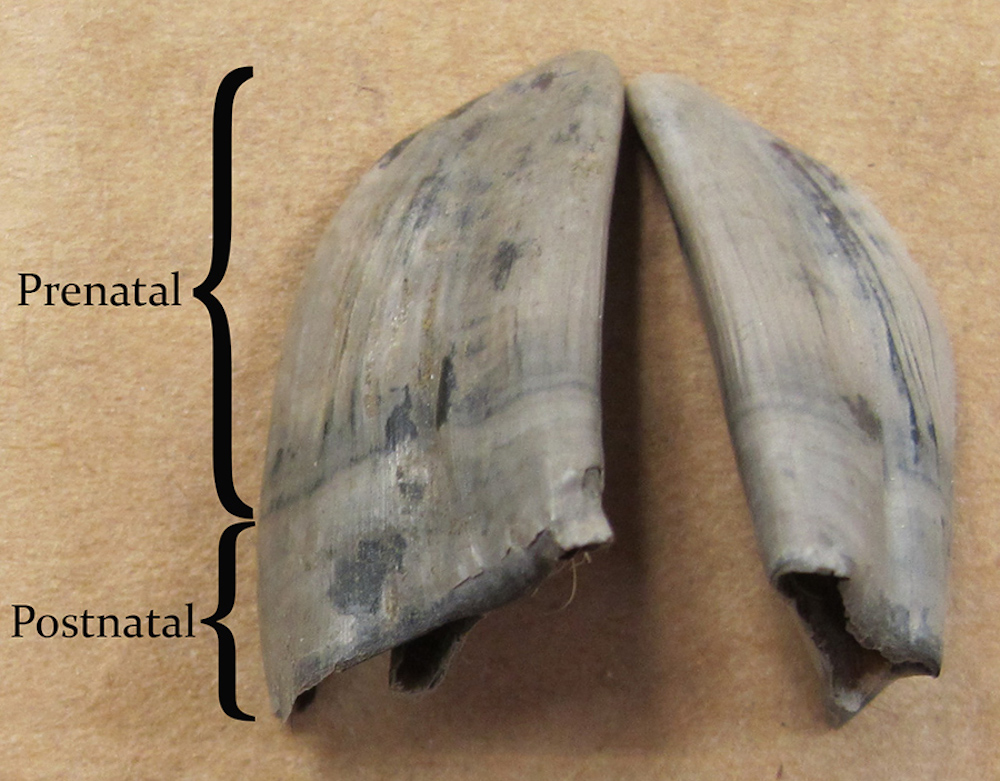
A close-up of the hooves belonging to the 14-day-old fawn. The brackets show the areas of prenatal and postnatal growth, which helped the researchers estimate its age.
Elk hoof
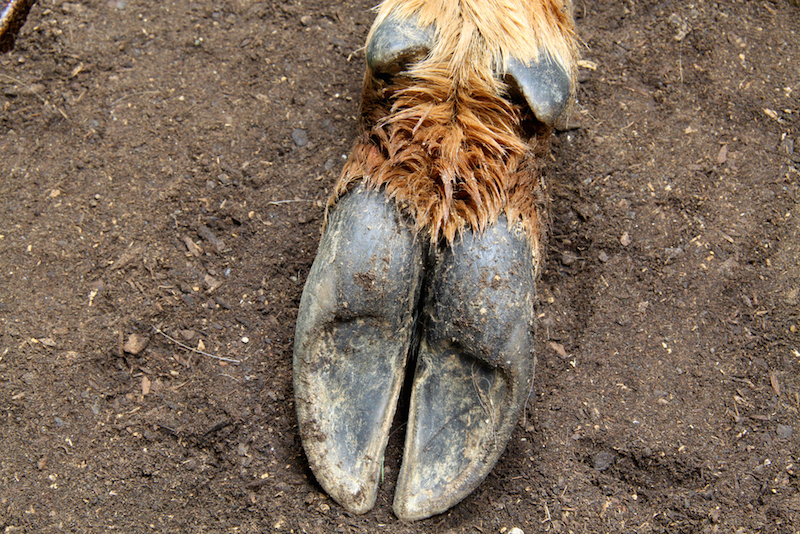
Much like this elk hoof (which is not related to the study), deer hooves have four toes — two in the front and two dewclaws in the back.[Read the Full Story on the Ravenous Python]

Laura is the archaeology and Life's Little Mysteries editor at Live Science. She also reports on general science, including paleontology. Her work has appeared in The New York Times, Scholastic, Popular Science and Spectrum, a site on autism research. She has won multiple awards from the Society of Professional Journalists and the Washington Newspaper Publishers Association for her reporting at a weekly newspaper near Seattle. Laura holds a bachelor's degree in English literature and psychology from Washington University in St. Louis and a master's degree in science writing from NYU.










